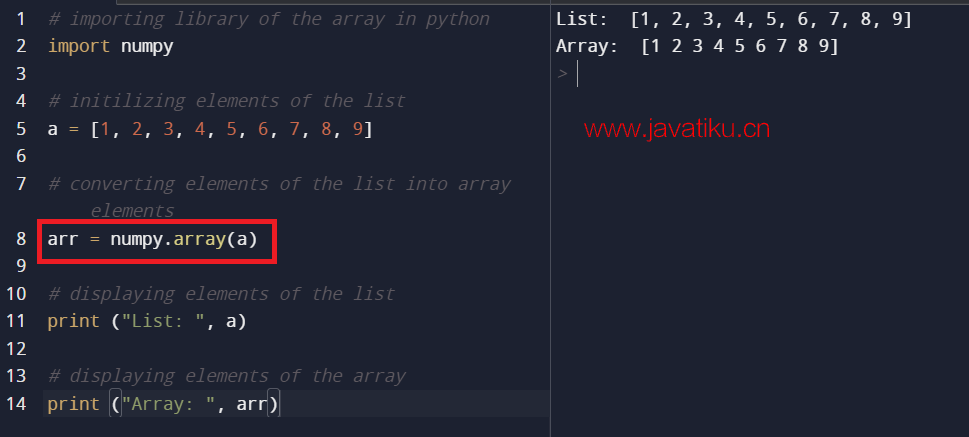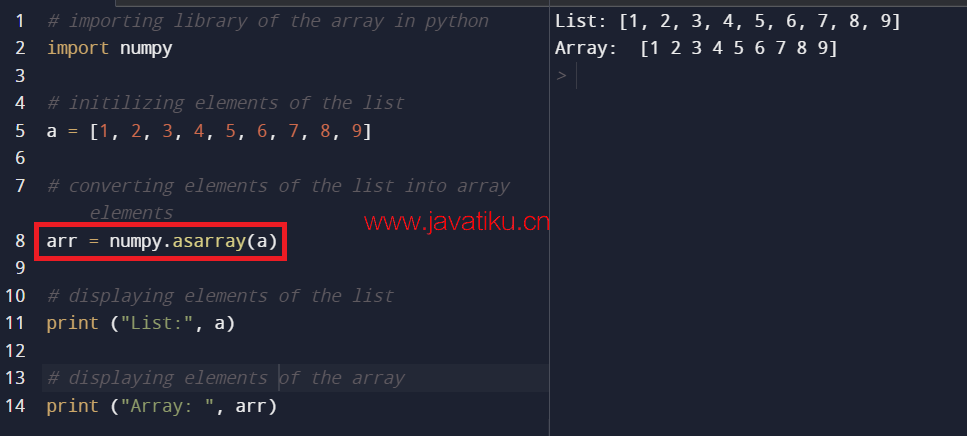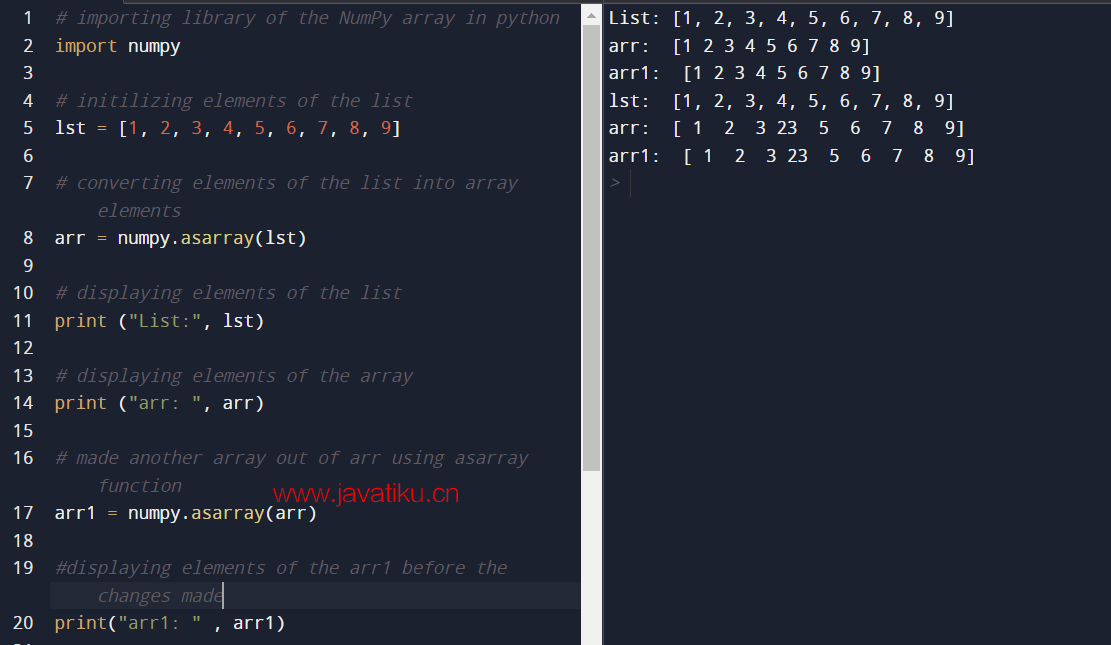Python教程-将 Python 列表转换为 NumPy 数组

介绍
在 Python 中,列表是一种线性数据结构,可以存储各种不同类型的元素。它不需要预先定义大小,并且可以根据需要扩展或缩小。另一方面,NumPy 数组是一种可以存储相同类型元素的数据结构,它是使用 NumPy 库在 Python 中实现的。该库在处理多维数组时非常高效,也在处理大量数据元素时非常高效。与列表数据结构相比,NumPy 数组占用更少的内存。NumPy 数组和列表都可以通过索引值来访问它们的元素。
NumPy 库提供了两种方法将列表转换为 Python 中的数组。
- 使用 numpy.array()
- 使用 numpy.asarray()
方法 1:使用 numpy.array()
在 Python 中,将列表转换为 NumPy 数组的最简单方法是使用 numpy.array() 函数。它接受一个参数并返回一个 NumPy 数组。它在内存中创建一个新的副本。
程序 1
# importing library of the array in python
import numpy
# initilizing elements of the list
a = [1, 2, 3, 4, 5, 6, 7, 8, 9]
# converting elements of the list into array elements
arr = numpy.array(a)
# displaying elements of the list
print ("List: ", a)
# displaying elements of the array
print ("Array: ", arr) 输出:
List: [1, 2, 3, 4, 5, 6, 7, 8, 9]
Array: [1 2 3 4 5 6 7 8 9]
方法 2:使用 numpy.asarray()
在 Python 中,第二种方法是使用 numpy.asarray() 函数将列表转换为 NumPy 数组。它接受一个参数并将其转换为 NumPy 数组。它不会在内存中创建新的副本。在这种情况下,对原始数组所做的所有更改都会反映在 NumPy 数组上。
程序 2
# importing library of the array in python
import numpy
# initilizing elements of the list
a = [1, 2, 3, 4, 5, 6, 7, 8, 9]
# converting elements of the list into array elements
arr = numpy.asarray(a)
# displaying elements of the list
print ("List:", a)
# displaying elements of the array
print ("Array: ", arr) 输出:
List: [1, 2, 3, 4, 5, 6, 7, 8, 9]
Array: [1 2 3 4 5 6 7 8 9]
程序 3
# importing library of the NumPy array in python
import numpy
# initilizing elements of the list
lst = [1, 2, 3, 4, 5, 6, 7, 8, 9]
# converting elements of the list into array elements
arr = numpy.asarray(lst)
# displaying elements of the list
print ("List:", lst)
# displaying elements of the array
print ("arr: ", arr)
# made another array out of arr using asarray function
arr1 = numpy.asarray(arr)
#displaying elements of the arr1 before the changes made
print("arr1: " , arr1)
#change made in arr1
arr1[3] = 23
#displaying arr1 , arr , list after the change has been made
print("lst: " , lst)
print("arr: " , arr)
print("arr1: " , arr1) 输出:
List: [1, 2, 3, 4, 5, 6, 7, 8, 9]
arr: [1 2 3 4 5 6 7 8 9]
arr1: [1 2 3 4 5 6 7 8 9]
lst: [1, 2, 3, 4, 5, 6, 7, 8, 9]
arr: [ 1 2 3 23 5 6 7 8 9]
arr1: [ 1 2 3 23 5 6 7 8 9]



